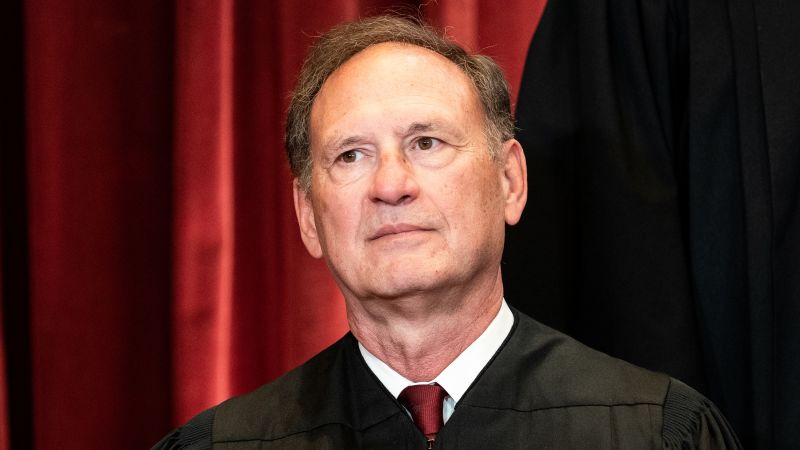In the evolving landscape of the United States Supreme Court, Justice Samuel Alito is set to contribute to the judicial discourse through his upcoming book, which is expected to be released in the following year. This marks a pivotal moment for Alito, who has been a steadfast conservative voice and one of the senior members on the bench since his appointment by President George W. Bush. Alito joins a growing list of his colleagues who have opted to enter the literary arena, capitalizing on their positions to address wider audiences through the power of the written word.
The specific focus of Alito’s forthcoming book remains undisclosed, as do the particulars regarding its title. However, it will be published under the Basic Liberty imprint, associated with Basic Books, as confirmed by the publisher. This initiative represents a significant opportunity for Alito to articulate his views and insights, especially considering the impact he has had on various landmark decisions throughout his career, most notably the controversial ruling in 2022 that overturned Roe v. Wade. Alito’s consistent alignment with conservative principles and his recent role in pivotal cases reflective of President Donald Trump’s presidency have positioned him as a focal point of both praise and criticism in today’s polarized climate.
The literary trend among Supreme Court justices is gaining momentum. Justice Ketanji Brown Jackson, renowned for being the first Black woman to serve on the Supreme Court, has been actively engaging with the public, sharing her memoir insights from the previous year. Furthermore, Justice Amy Coney Barrett, another jurist appointed during Donald Trump’s term, is gearing up for the release of her own book next month to coincide with promotional events this fall. Of particular note is Justice Brett Kavanaugh, who is also planning to unveil his literary contributions in the coming months, alongside Justice Neil Gorsuch, who recently published a book expressing concerns regarding the overwhelming proliferation of federal legislations.
The financial implications of publishing books for the justices cannot be overlooked. Earning upwards of $300,000 annually, justices are restricted to receiving no more than approximately $30,000 from external income, excluding book earnings. This exemption provides a lucrative platform for justices like Alito to explore authorship beyond their judicial duties. Notably, three justices disclosed impressive earnings from their books in their annual financial statements released in June, with Jackson reporting over $2 million from Penguin Random House, while both Justice Sonia Sotomayor and Gorsuch reported significant incomes in six figures for their literary ventures.
Despite the transparency surrounding these financial disclosures, Alito has requested extensions in the past to submit his statements, a pattern that continues this year. His hesitation raises questions about the motivations for prolonging these disclosures, especially as more justices capitalize on their visibility through book sales.
Given his extensive judicial experience and the support he enjoys from conservative circles, Alito’s book is anticipated to capture significant public interest, potentially becoming a bestseller. His previous roles as a federal prosecutor and appeals court judge have afforded him considerable credibility, although he remains a polarizing figure, drawing sustained criticism from more progressive factions. In light of his senior position on the court and the current Republican control of the Senate, there has been speculation regarding Alito’s retirement at the close of the Supreme Court’s recent term in June, which could have opened the door for Trump to nominate another conservative successor. However, no announcement of retirement was made, leaving observers to ponder Alito’s future placement within this influential institution.
In conclusion, the entry of Justice Samuel Alito into the world of authorship reflects an ongoing trend within the Supreme Court, where justices leverage their judicial influence in multifaceted ways. This development highlights their roles not just as arbiters of the law but also as public figures engaged in broader societal and political dialogues. Alito’s efforts are emblematic of the way modern justices navigate their powerful positions, balancing judicial responsibilities with opportunities for personal expression and financial gain.











